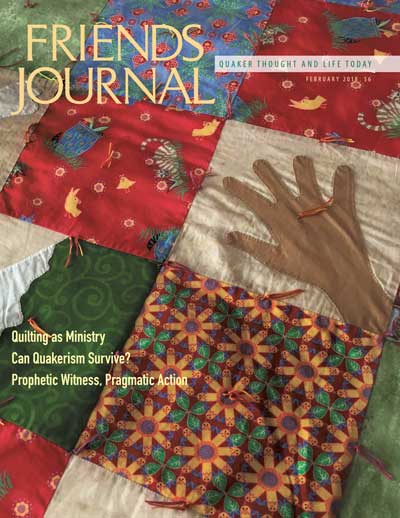Levinger—George Klaus Levinger, 90, on July 3, 2017, in Amherst, Mass. George was born on February 5, 1927, in Berlin, Germany. When he was eight, his Jewish family escaped from Nazi Germany, traveling from Switzerland to London and arriving in Ellis Island when he was 14. At 16, he entered Columbia University, followed by training in Japanese to serve in the Army Counter Intelligence Corps in Japan.
He met Ann Cotton in California in 1950, and they married in 1952. After wending their way through a series of faith gatherings, he and Ann found the link between their Jewish and Presbyterian traditions in Ann Arbor (Mich.) Meeting, where simplicity, equality, dignity, and lack of formal doctrine led them on their Quaker journey. After graduate work at Columbia and the University of California, Berkeley, he earned a doctorate in social psychology from the University of Michigan. He taught at Bryn Mawr College, at Case Western Reserve University (then Western Reserve University), and beginning in 1967 at the University of Massachusetts.
During their 52 years at Mt. Toby Meeting in Leverett, Mass., he took part in weekly antiwar vigils on Amherst Common; helped resettle Cambodians in Amherst; continued to expand those relationships; and joined the Alternatives to Violence Project at the prison in Somers, Conn. He promoted affordable housing, analyzed federal budgets with the National Priorities Project, and in 1961 wrote “The Use of Force in International Affairs.” He served on the Woolman Hill Conference Center board and into retirement published articles about the psychology of conflict and peace.
Friends recall his affection. His pocket calendar was always handy to arrange sociable visiting. He and Ann continually opened their home to meeting guests and to others needing accommodations. Guests at the Levingers’ breakfast table were fully attended as he remained seated, turning pancakes on an adjoining grill.
His spirituality emphasized energy. Believing in a world with an underlying community where we see God as the Light in all, he searched energetically for meaning in humanity and nature. He retired in 1992, and he and Ann immersed themselves in other cultures and in nature: biking, camping, canoeing, hiking, learning other languages, and teaching in different cultures.
In June of 2017, he reprinted the chapter “Ann & I” from his memoir, After the Storm (2011), with a postscript: “to honor Ann . . . no longer her former self.” He had written: As I matured, I became calmer and more encouraging as a husband and father. I felt less driven than earlier. It was also helpful that I worked with female colleagues and graduate students, who pushed me toward a greater appreciation of gender equality, probably reducing struggles Ann and I might otherwise have had. . . . What counts in making a happy marriage is not so much how compatible you are, but how you deal with incompatibility.
George’s wife of 65 years, Ann Cotton Levinger, died 12 days before him. He is survived by his four children; his brother, Bernie Levinger; and eight grandchildren.



Comments on Friendsjournal.org may be used in the Forum of the print magazine and may be edited for length and clarity.